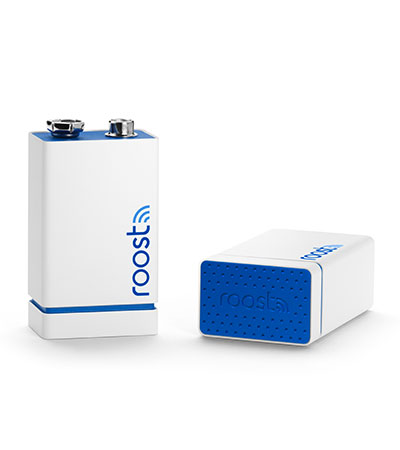Roost’s PLM Operations Manager Talks Shop
 UFOs. Bigfoot. Loch Ness Monster. PLM Operations Managers. All are shrouded in mystery. Ever wonder what product lifecycle management (PLM) operations managers do? Here are a couple of anonymous job descriptions from LinkedIn to give you an idea:
UFOs. Bigfoot. Loch Ness Monster. PLM Operations Managers. All are shrouded in mystery. Ever wonder what product lifecycle management (PLM) operations managers do? Here are a couple of anonymous job descriptions from LinkedIn to give you an idea:
*Primary liaison between PLM team and production, finance and sales. Oversee operational tasks to keep the team on schedule and ensure clear communication with partners and suppliers. Provide support and manage special projects related to process improvements, efficiencies, and inter-department cooperation.
*Lead cross-functional teams in the development of strategic plans aligned with corporate Product Lifecycle Management initiatives.
*Lovingly support product team members who were forced over the course of long months to try to implement an unwieldy on-premise PLM solution. Act as the liaison between the company and group therapy. Provide tissues to wipe away tears from product team defeated by the process.
Arena recently had the honor to speak with Jim Van Patten, the Vice President of Operations at Roost, one of our many innovative customers. Jim agreed to clandestinely speak with us under the condition of anonymity. Oops. Because getting operations managers to talk candidly is so rare, we decided to milk our conversation into a three-part blog post series. Jim had so much good stuff to share we didn’t even have to fluff it up.
Arena: Tell us about Roost.
Van Patten: Roost is a newer Internet of Things (IoT) company and we provide wireless services to the house. Our goal is to retrofit existing products in your home. We feel it’s possible for homeowners to achieve these kind of wireless services for a lot less money, a lot easier implementation, and a lot faster. If you wanted a wireless refrigerator, you’d have to throw out the one you’ve got and get a new one. Our goal would be to figure out ways of making your dumb appliances smart.
Arena: Was your first product a battery for a smart smoke alarm?
Van Patten: Yes. There are over 300 million smoke alarms in the United States. Almost all of them are dumb smoke alarms. In other words, they’re designed to alarm while you’re in the house, to wake you up, and to get you outside, so, they’re really a safety appliance. When you’re not home; however, when your alarm sounds it doesn’t really do you much good. There’s nobody there. Nobody can react to a fire and it’s been measured that there’s a significant difference between what are called ‘attended’ and ‘unattended’ fires.
Arena: Insurance companies, in particular, are interested in trying to turn ‘unattended’ fires into ‘attended’ fires, correct?
Van Patten: Yes. That’s precisely what we do. We use two lithium cells that are regulated by a specific voltage. Because it’s a regulated power supply it always provides that voltage. It doesn’t slowly degrade like a nine-volt battery does. It stays at its regulated power until it’s unable to do so. That’s one difference. The second difference is, it’s wireless, so the battery connects to your home access point.
From there it goes to our Cloud, our back-end, where you register your battery. You give it a name, you type in your smartphone number, and anyone else’s telephone number that you’re interested in getting alerts. The third difference is that the battery powers your smoke alarm, powers the wireless, and it waits and listens for your smoke alarm. When your smoke alarm goes off it sends an alert to your smartphone regardless of your location.
Arena: What challenges do operations managers face from a product lifecycle management standpoint?
Van Patten: I think the greatest challenge that operations has is that IoT businesses are constantly evolving. In other words, with product lifecycles measured in months and competitors coming to market practically monthly as well, it’s important that we find ways to drive down costs and understand our customer’s requirements better.
Arena: Managing suppliers is an important part of your role as an operations manager, correct?
Van Patten: There are problems that you solve and problems that you manage. All of the operational decisions are those that you manage as needs and requirements change over time. So, what does this mean for a PLM system? Well, it means that it’s important that the system is flexible enough so I can set the system up in a way that doesn’t prohibit me from making the kind of changes I need to make in the future; for instance, component changes where we need rev levels needed to be able to manage suppliers.
We need to quickly move to alternate sources when less expensive sources become known. It becomes a very active system. I use Arena PLM every day. I don’t know where we’d be without it. Engineer changes, part changes, packaging changes are all managed in Arena PLM. It’s a constant improvement to our product. I remind everyone that Arena PLM is our single source of truth. So, forget the emails and forget whatever piece of paper you’ve got on your desk. If you want to know what we’re making today you got to go to Arena PLM to find out.
Stay tuned for more from Jim Van Patton in our next blog post. If you’re an operations manager, we’d love to hear about your day-to-day responsibilities and how a PLM solution impacts your tasks. Alternatively, if you’re a PLM leader drowning in a sea of version control frustration from manual processes or spreadsheets please accept our heartfelt expression of sympathy. Feel free to vent. Arena is here to help, please comment below.


